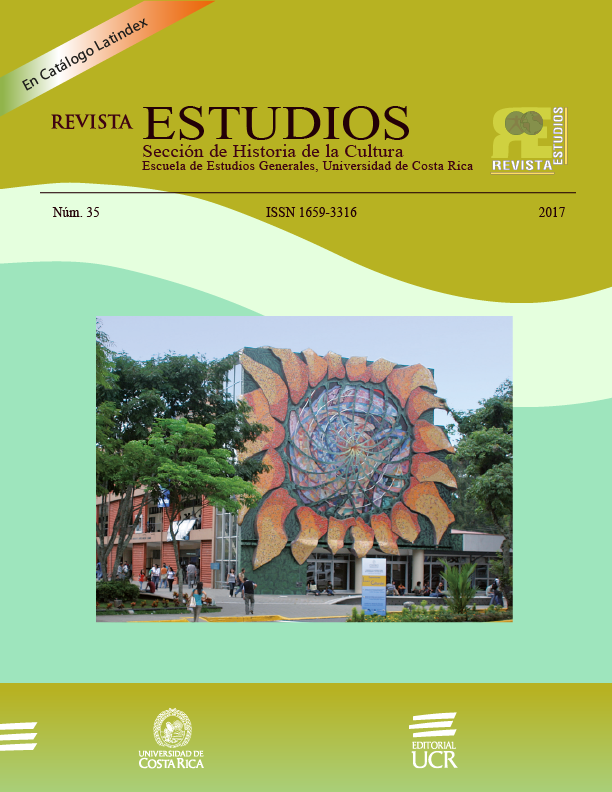Resumen
This study used a qualitative research design to analyse how religion and politics interacts in the case of blasphemy-related violence in Pakistan. Interviews and focus groups were conducted with a sample of Police Officers, and members of the Hindu, Muslim and Christian communities in Sukkur, Pakistan. This study finds that blasphemy-related violence occurs in a context where politics has been used to Islamize society, which is reflected in the state’s struggle with identity, antagonistic and disconnected relationship between communities, and an atmosphere of fear, intolerance and discrimination felt by minority communities in Pakistan. Through the islamization process, the state essentially mandated vigilante religious violence. This has morphed into blasphemy-related violence today, which continues to be tolerated by the stateCitas
Abrahams, R. (2002) “What’s in a name? Some Thoughts on the Vocabulary of Vigilantism and Related Forms of Informal Criminal Justice”, in Feenan, D. (ed.) Informal Criminal Justice (Advances in Criminology). Aldershot, Hants, England: Ashgate Publishing, pp. 25–40.
Abrahams, R. (2007) ‘some thoughts on the comparative study of vigilantism”, in Pratten, D. and Sen, A. (eds.) Global vigilants: David Pratten and Atreyee Sen, editors. London: C Hurst & Co Publishers, pp. 419–443.
Ali, T. (2003) The Clash of Fundamentalisms: Crusades, Jihads and Modernity. London: Verso Books.
Ayaz, B. (2013) What’s Wrong With Pakistan? Delhi: Hay House Publishers.
Bahadur, K. (2006) “Regional Implications for the Rise of Islamic Fundamentalism in Pakistan”, Strategic Analysis, 30(1), pp. 7–29.
Bokhari, L. (2012) “Radicalization, Political Violence, and Militancy”, in Cohen, S. (ed.) The future of Pakistan. Washington, D.C.: Brookings Institution Press.
Brown, R. M. M. (1975) Strain of Violence: Historical Studies of American Violence and Vigilantism. New York: Oxford University Press.
Cottee, S. (2014) “We Need to Talk About Mohammad: Criminology, Theistic Violence and the Murder of Theo Van Gogh”, British Journal of Criminology, 54(6), pp. 981–1001. doi: 10.1093/bjc/azu037.
Devlin, P. (1965) The Enforcement of Morals. United States: Oxford University Press, USA.
Engage Pakistan | Research | Dialogue | Reform (2015) Available at: http://engagepakistan.com/ (Accessed: 7 August 2015).
Forte, D. F. (1995) “Apostasy and Blasphemy in Pakistan”, Connecticut Journal of International Law, 10, pp. 27–68.
Grim, B. J. and Finke, R. (2011) The Price of Freedom Denied: Religious Persecution and Conflict in the Twenty-First Century (Cambridge Studies in Social Theory, Religion and Politics): religious persecution and conflict in the 21st century. New York: Cambridge University Press.
Hall, J. R. (2013) “Religion and Violence from a Sociological Perspective”, in Juergensmeyer, M. /, Kitts, M., and Jerryson, M. K. (eds.) The Oxford handbook of religion and violence. New York: Oxford University Press, pp. 363–375.
Hoffman, M. (2014) “Modern Blasphemy Laws in Pakistan and the Rimsha Masih Case: What Effect—if Any—the Case Will Have on Their Future Reform”, Washington University Global Studies Law Review, 13(2), pp. 371–392.
Indian Penal Code 1860.
Jackson, J., Asif, M., Bradford, B. and Zakria Zakar, M. (2014) “Corruption and Police Legitimacy in Lahore, Pakistan”, British Journal of Criminology, 54(6), pp. 1067–1088. doi: 10.1093/bjc/azu069.
Jalal, A. (2014) The Struggle for Pakistan: A Muslim Homeland and Global Politics. United States: The Belknap Press.
Johnston, L. (1996) “What is Vigilantism?” British Journal of Criminology, 36(2), pp. 220–236. doi: 10.1093/oxfordjournals.bjc.a014083.
Jeurgensmeyer, M. and Sheikh, M. K. (2013) “A sociotheological approach to understanding religious violence”, in Juergensmeyer, M. /, Kitts, M., and Jerryson, M. K. (eds.) The Oxford handbook of religion and violence. New York: Oxford University Press, pp. 620–645.
Khan, Y. (2007) The Great Partition: The Making of India and Pakistan. New Haven: Yale University Press.
Lau, M. (2007) “Twenty-Five Years of Hudood Ordinances-A Review”, Washington and Lee Law Review, 64, pp. 1291–1314.
Levy, L. W. W. (1993) Blasphemy: verbal offense against the sacred: from Moses to Salman Rushdie. 1st edn. New York, NY: Alfred A. Knopf.
Marshall, P., Shea, N., Wahid, K. H. A. and Paul Marshall & Nina Shea (2011) Silenced. ; How Apostasy and Blasphemy Codes Are Choking Freedom Worldwide. Oxford: Oxford University Press.
Milam, W. (2012) in Cohen, S. (ed.) The future of Pakistan. Washington, D.C.: Brookings Institution Press, pp. 134–150.
Pakistan Penal Code 1860.
Pratten, D. and Sen, A. (2007) “Global Vigilantes: Perspectives on justice and violence”, in Pratten, D. and Sen, A. (eds.) Global vigilantes: David Pratten and Atreyee Sen, editors. London: C Hurst & Co Publishers, pp. 1–25.
Rostow, E. V. (1960) “The Enforcement of Morals”, The Cambridge Law Journal, 18(02). doi: 10.1017/s0008197300009818.
Schwartz, L. B. (1963) “Morals Offenses and the Model Penal Code”, Columbia Law Review, 63(4). doi: 10.2307/1120582.
Siddique, O. and Hayat, Z. (2008) “Unholy Speech and Holy Laws: Blasphemy Laws in Pakistan”, Minnesota Journal of International Law, 17(2), pp. 305–383.
Sederberg, P. C. (1978) “The phenomenology of vigilantism in contemporary America: An interpretation”, Terrorism, 1(3-4), pp. 287–305. doi: 10.1080/10576107808435415.
Seiler, R. (2014) Christian Persecution in Pakistan: An Examination of Life in the Midst of Violence.
Shah, A. (2012) ‘security, Soldiers and the State”, in Cohen, S. (ed.) The future of Pakistan. Washington, D.C.: Brookings Institution Press, pp. 199–215.
Shotland, R. L. and Goodstein, L. I. (1984) “The Role of Bystanders in Crime Control”, Journal of Social Issues, 40(1), pp. 9–26. doi: 10.1111/j.1540-4560.1984.tb01079.x.
Silke, A. (2001) “Dealing with Vigilantism: Issues and Lessons for the Police”, Police Journal, 74, pp. 120–133.
Talbot, I. (2009) Pakistan: A Modern History. 3rd edn. London: C Hurst & Co Publishers.
Tankebe, J. (2009) ‘self-Help, Policing, and Procedural Justice: Ghanaian Vigilantism and the Rule of Law”, Law & Society Review, 43(2), pp. 245–270. doi: 10.1111/j.1540-5893.2009.00372.x.
Tankebe, J. (2011) “Explaining police support for the use of force and vigilante violence in Ghana” Policing and Society, 21(2), pp. 129–149. doi: 10.1080/10439463.2010.540663.
Toor, S. (2011) The State of Islam: Culture and Cold War Politics in Pakistan. London: Pluto Books.
Warikoo, K. (2011) “Religious Extremism and Terrorism in Pakistan and its Implications”, Himalayan and Central Asian Studies, 15 (3), pp. 4–23.

